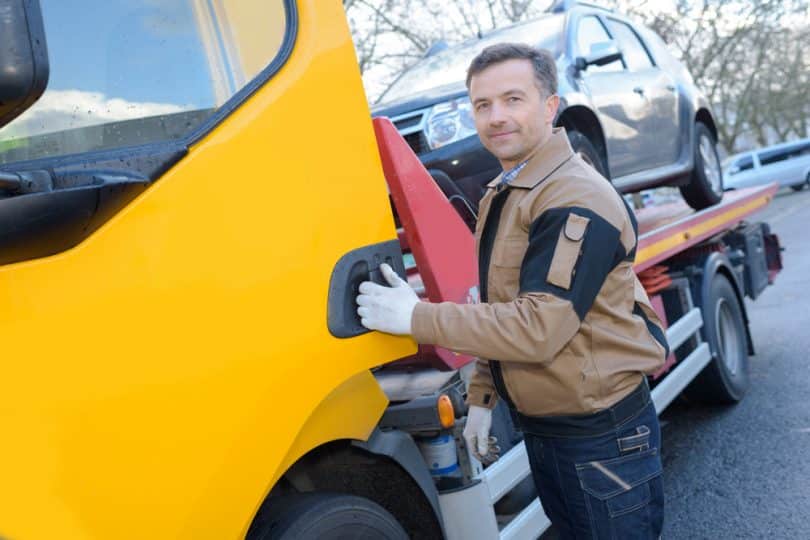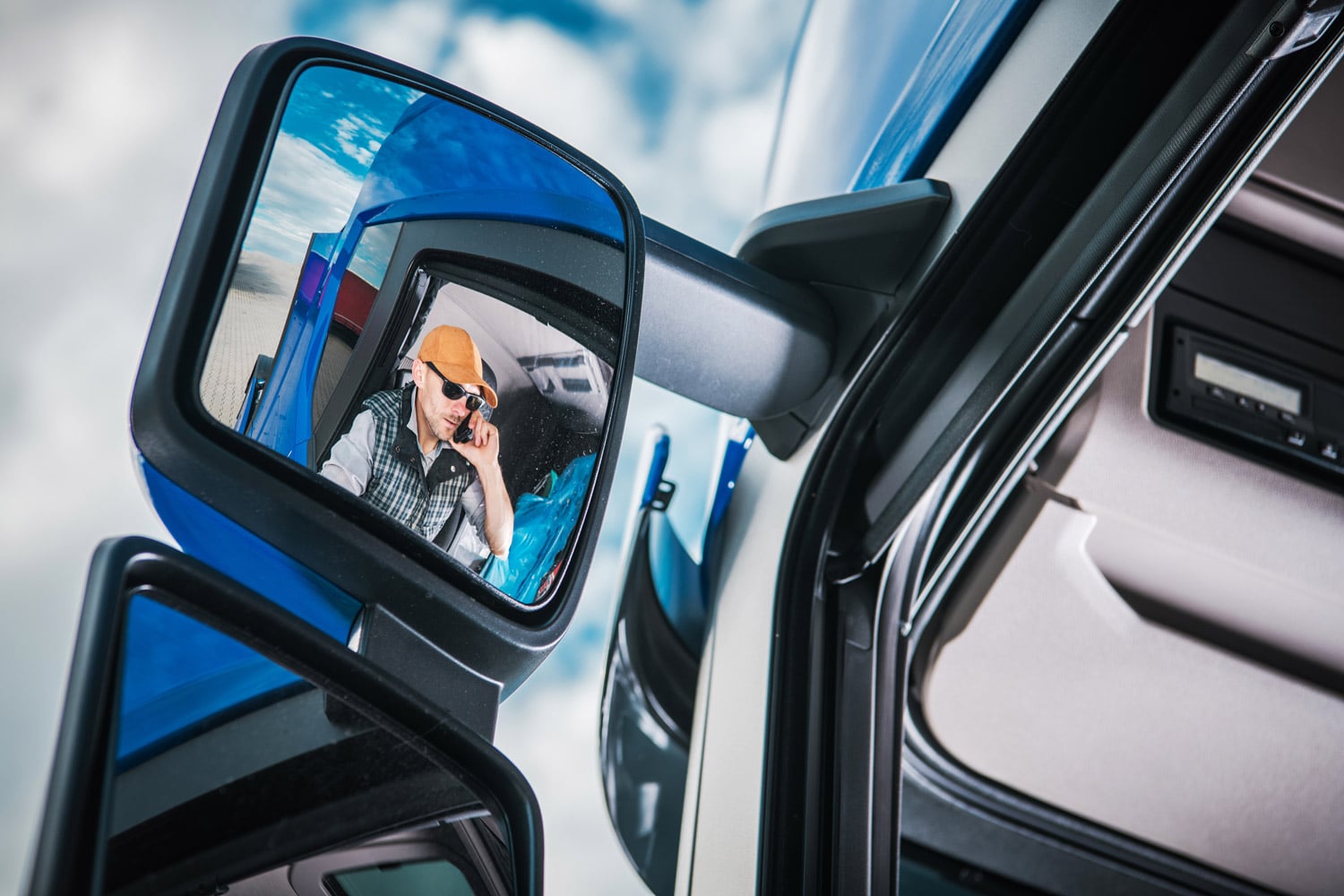Thinking about starting your own tow truck business? Before you jump in, you probably have a lot of questions about what you need to do to get started.
In this guide, we will go over the basic requirements. We will talk about getting your CDL, insuring your tow truck business, and more.
How Much Do Tow Truck Drivers Make?
First of all, how much can you earn towing?
According to Indeed.com, the base salary for a tow truck driver in the US is $70,802. So, that is a great career option.
The site reports that the highest paying cities in the US for tow truck drivers include:
- Baltimore
- Philadelphia
- Chicago
- Las Vegas
- San Diego
- Houston
- Fort Worth
- Cincinnati
So, if you happen to want to call any of those locations home, that is ideal for launching a career as a tow truck operator.
How Do I Start My Own Tow Truck Business?
Now that we have talked about two truck salaries, let’s get into what you need to do in order to start your own tow truck business.
Types of Towing Business
You will have to get started by thinking about what kind of tow truck business you want to run. There are two main options:
- Retail towing: This is the type of towing where a customer calls you and asks you to tow their vehicle.
- Non-consensual towing: This is precisely what it sounds like. When a property owner calls you and asks you to tow someone else’s vehicle, that is non-consensual towing. A law enforcement agency could also call in such a request.
A lot of people like the steady work that non-consensual towing can bring. But hassles can include vehicle owners who do not want to deal with you and/or lawsuits from said vehicle owners.
So, do some research, think about your priorities, and evaluate the pros and cons before you decide what type of tow truck company you want to operate.
General Requirements for a Towing Company
To operate your towing company, you will need to meet a few general requirements. These include stocking up on the right equipment, obtaining appropriate permits and licenses, and registering your business. Let’s get into the specifics.
What Equipment (and More) Do You Need?
Here are some of the items you will need to purchase to run your new business:
- Flatbed trucks. Expect to spend around $100,000 for each of these if you buy them new.
- Specialized lift & float trucks. Later down the line, you might invest in wheel lift trucks, full float trucks, and conventional tow trucks.
- Winch cables, quick picks, booms, and other equipment you need for towing.
- A venue out of which to work.
Also, you may be hiring employees. These could include office staff and/or drivers. They will need salaries and benefits.
Let’s also not forget about towing insurance (more on that later).
Do You Need a CDL to Drive a Tow Truck?
One of your biggest questions is probably whether you need a CDL to run this type of business or not. We can answer this question in detail by turning to the Federal Motor Carrier Safety Administration (FMCSA).
Here is what the linked page has to say on the matter:
Guidance: For CDL purposes, the tow truck and its towed vehicle are treated the same as any other powered unit towing a non-powered unit.
• If the GCWR of the tow truck is 26,001 pounds or more and the towed vehicle alone exceeds 10,000 pounds GVWR, then the driver needs a Class A CDL.
• If the GVWR of the tow truck alone is 26,001 pounds or more, and the driver either (a) drives the tow truck without a vehicle in tow, or (b) drives the tow truck with a towed vehicle of 10,000 pounds or less GVWR, then the driver needs a Class B CDL.
• A driver of a tow truck or towing configuration that does not fit either configuration description above requires a Class C CDL only if he or she tows a vehicle required to be placarded for HM on a “subsequent move,” i.e., after the initial movement of the disabled vehicle to the nearest storage or repair facility.
So, the only situation where you would not need a CDL to get started is if you are operating a light duty truck, as that might come in at under 26,000 pounds.
We strongly recommend that you do get your CDL, since it will allow you to operate heavier tow trucks.
That will open up many more opportunities and give you a great deal more freedom with respect to how you operate.
In fact, Indeed.com mentions that drivers of tow trucks with CDL A licenses earn around 45.87% more than those who do not have CDLs.
That adds up to a huge potential pay raise over the base salary we discussed before.
The salary increase with a CDL B is even higher—around 48.96% more than the base pay.
If you were going to work for another towing company, having a CDL would increase what you can earn. And the same is true if you run your own business.
Where can you train to get your CDL? You can find local programs here.
Do You Need Any Other Licenses or Permits?
Along with your CDL, there are some other types of licenses and permits that you might require.
Depending on the state where you will be operating, you might require a towing company license.
Permits you might require include an oversized vehicle permit, a private property permit, a consent tow permit, and an indictment management permit.
Not every type of towing business requires all of these permits. For example, you only need a private property permit if you are running a non-consensual towing company. Otherwise, it doesn’t apply to you.
Register Your Towing Company
While you are working on getting your CDL, you can also take care of the paperwork and fees involved with starting a business.
That means deciding what type of business entity you want to operate as, and then registering your business with your state and local governments.
Additionally, you will need to apply for federal and state tax identification numbers.
You can take care of all of these steps on your own. But there are attorneys who specialize in setting up businesses who can help you if you need it.
What to Know About Tow Truck Insurance Requirements
Last but not least, let’s talk for a moment about tow truck insurance, which is something else you will need to get your tow truck company off the ground.
To start with, you are going to need two types of insurance for your employees if you have them: worker’s compensation and unemployment insurance.
These types of insurance are federally mandated. You would have to have them regardless of what type of business you were operating.
Three more forms of insurance any business should think about getting include disability insurance, commercial property insurance, and professional liability insurance.
Finally, because you are operating a tow truck company specifically, you should also look into these types of insurance:
- Physical damage insurance: If there is an accident and your tow truck is damaged, this will provide coverage for the costs of repairing it.
- Auto-liability insurance: If you or one of your drivers hits someone else on the road and is at fault for the accident, this type of insurance is what will help you pay for the damages. That includes both vehicle damages and medical costs.
- Uninsured motorist coverage: If a tow truck driver is involved in an accident with a person who is uninsured, this type of insurance will help cover the costs of damages. This type of insurance also helps to pay for expenses related to hit-and-run accidents.
- On-hook coverage: If you hook a vehicle to your truck to tow it and it is damaged after you do so, on-hook coverage will help pay for it.
While all these different types of insurance will add to the cost of running your tow truck business, in the long run, they will probably save you a great deal of money. So, do not skimp when it comes to insurance coverage.
Call 405-776-1989 For Your Free Insurance Quote
Get Your CDL Now and Start Your Own Tow Truck Company
Now you know about the different types of towing businesses, how much tow truck drivers make, and the basic requirements to go into business. Are you ready to start your own tow truck company? Continue exploring our site to learn more about careers in trucking, or find your local CLD training program now.



